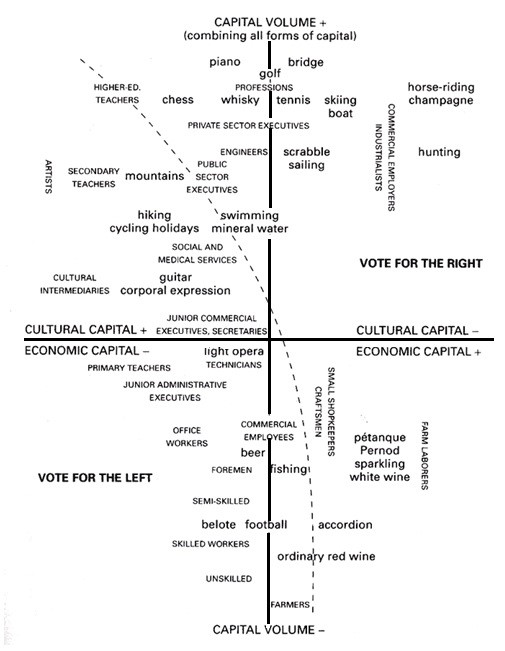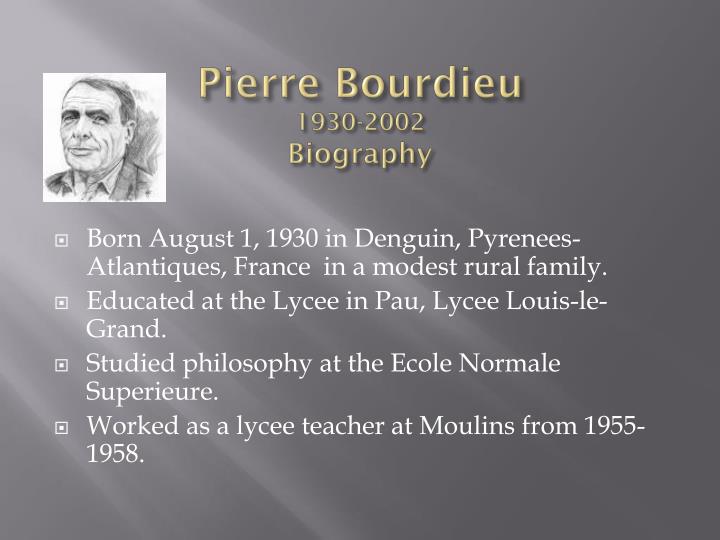
As even Bourdieu points out (pg 99), you don't need his dubious data to reach this conclusion, it merely follows from the premise of his argument which you can accept or reject.īeyond that: Have you ever gotten into a barroom conversation in which someone has said something like "Statistics just tells you whatever you think you already know."? They're full of shit (ask this person to explain degrees of freedom in a chi-squared distribution and watch them stutter like Rick Perry trying to recall how them gays are evil), but there's always Bourdieu to prove that someone can design a bad survey that serves their point.ĭid Pierre understand statistics? No, but the man could divide by 100 and so this book is full of percentages. Or near-masterpiece as he doesn't quite follow his own argument to its logical conclusion: that there is no art as such, only class distinctions in aesthetic interpretation.

Part I, "The Aristocracy of Culture" is a masterpiece, if you ignore Bourdieu's crappy methodology. There's no point in reading philosophy or sociology if you don't read it critically. But for crying out loud, read the whole thing and read it critically.

Now, don't get me wrong, if I were to teach a class on aesthetics, the first chapter, an absolute masterpiece, would be required reading. In the process, he tried to reconcile the influences of both external social structures and subjective experience on the individual (see structure and agency).īourdieu is getting high praise here on Goodreads and, no offense, but did you read the whole thing? His argument is put forward by an original combination of social theory and data from surveys, photographs and interviews, in an attempt to reconcile difficulties such as how to understand the subject within objective structures. His best known book is Distinction: A Social Critique of the Judgment of Taste, in which he argues that judgments of taste are related to social position. A notable influence on Bourdieu was Blaise Pascal, after whom Bourdieu titled his Pascalian Meditations.īourdieu rejected the idea of the intellectual "prophet", or the "total intellectual", as embodied by Sartre. He built upon the theories of Ludwig Wittgenstein, Maurice Merleau-Ponty, Edmund Husserl, Georges Canguilhem, Karl Marx, Gaston Bachelard, Max Weber, Émile Durkheim, Erwin Panofsky, and Marcel Mauss. His work emphasized the role of practice and embodiment or forms in social dynamics and worldview construction, often in opposition to universalized Western philosophical traditions.

Bourdieu pioneered investigative frameworks and terminologies such as cultural, social, and symbolic capital, and the concepts of habitus, field or location, and symbolic violence to reveal the dynamics of power relations in social life.


 0 kommentar(er)
0 kommentar(er)
